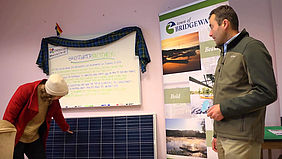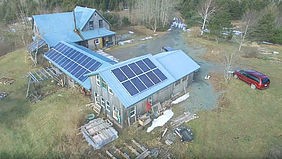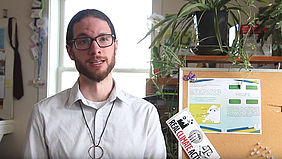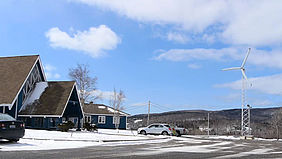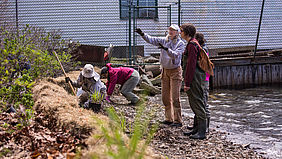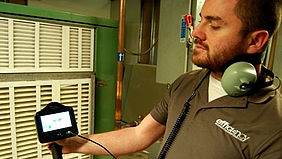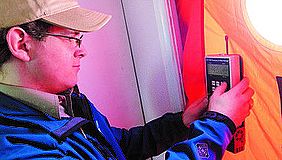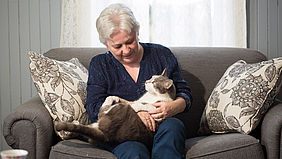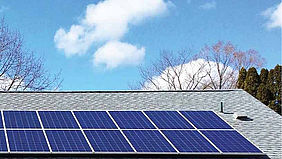SECURE Canadian partner, Ecology Action Centre from Nova Scotia, is one of the most experienced project regions in terms of energy efficiency measures and solutions. The expertise and good practices coming from Atlantic Canada have been very meaningful for the communities located in Ireland, Northern Ireland, Faroe Islands and Sweden during the process of building their Smarter Energy Communities.
Since May 2016, Ecology Action Centre has shared its know-how with the SECURE partnership. Representatives from EAC have attended Steering Group Meetings, project seminars and study visits twice a year and have inspired project partners with their knowledge. Furthermore, they have recorded a series of videos to show some of their best energy practices overseas: Bridgewater, where an exciting new program has been launched to engage with its citizens about their energy use; Antigonish Community Energy co-operative, a volunteer-run not-for-profit organization that organizes bulk purchases of solar panels for residents, businesses, and community organizations in the Antigonish area and in Cape Breton, and Community Feed-in Tariff (COMFIT) program, part of Nova Scotia's ongoing efforts to move away from carbon-based electricity to achieve 40% renewable energy sources by 2020. Watch the three videos produced in Nova Scotia.
Apart from producing very valuable videos, EAC has conducted a series of surveys between communities in the SECURE regions and staff members working in project partner organisations. The first survey was circulated at the beginning of the project. According to Emma Norton from EAC, “the surveys helped us better understand awareness-building opportunities in each opportunity and the factors that impact individual’s energy-conservation behaviours.”
At the beginning of 2019, EAC sent the second survey to compare results and measure any energy awareness increase in the partner regions. After analysing all the answers (122 from the general public and 202 from staff), our Canadian partner concluded that “the main motivators -based on averages from all survey responses- are financial savings, saving natural resources, setting a good example and the climate change”. Moreover, respondents’ main points of interest were related to wind turbines, solar PV, solar hot water, biomass, tidal power, hydropower and geothermal topics.
Emma Norton shared more interesting conclusions with partners. For example, she explained that 73% of the people surveyed agreed that they are interested in having renewable energy installed on their home, while only 44% of them will pay more to install it at their places. In addition, the 69% would insulate/air seal their home and the 35% agree that there is a culture of efficiency in their region.
Canadian good energy practices
In total, Ecology Action Centre has shared 7 energy actions with the project partners:
- COMFIT (Community Feed-In Tariff): a program designed to encourage community-based, local renewable energy projects.
- Municipal Climate Change Action Plans: an agreement that allows the transfer of Federal Gas Tax funds to municipalities for environmentally sustainable infrastructure projects.
- Onsite Energy Managers: a program run by Efficiency Nova Scotia that allows an organization (a university, school or municipality) to hire a full-time employee to focus on reducing their energy consumption.
- Efficiency Nova Scotia: Canada’s first energy efficiency utility working with more than 200 local partners. It’s a non-profit organization with a mandate of reducing energy consumption in Nova Scotia.
- HomeWarming: a program that provides energy-saving home upgrades to income-qualified homeowners at no cost.
- Property Assessed Clean Energy (PACE): a program that enables property owners to invest into Energy Efficient Upgrades or Renewable Energy for their property.
- Solar City Program: a program that allows property owners in the municipality to finance their solar energy projects through their property.
Find here further details about all the mentioned energy practices.

